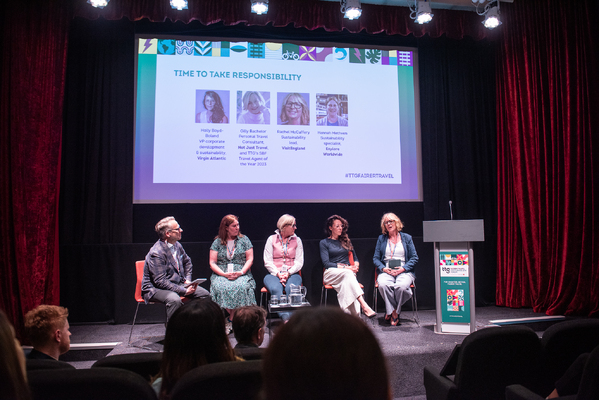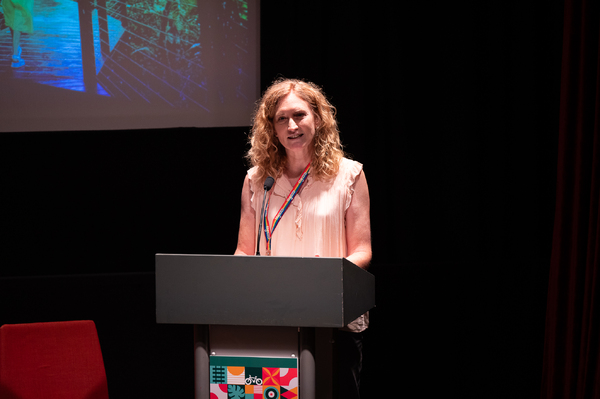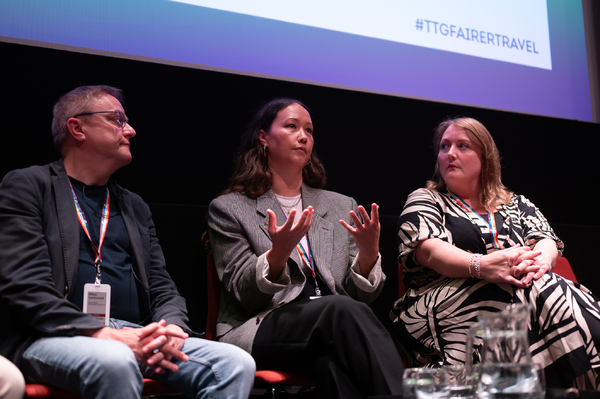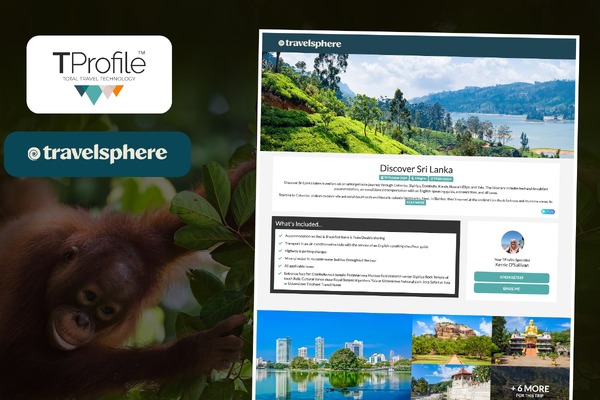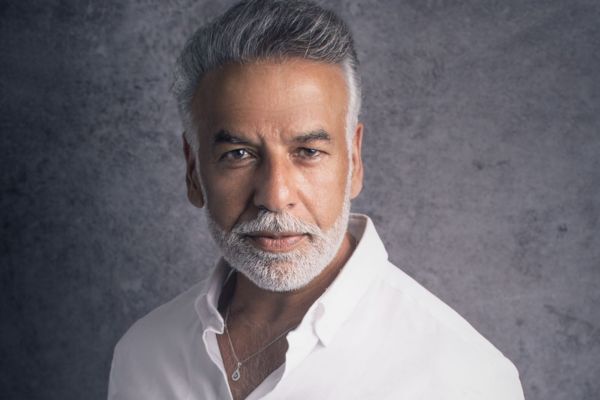Don’t mention the ‘S’ word – and 11 other actions to support responsible travel
 Sarah Dennis
Sarah DennisTTG’s recent Fairer Travel Sustainability Forum played host to a series of debates spanning communication, overtourism and discovering ‘small acorns’, while also exploring how everyone can be a champion for change.
Part of TTG Fairer Travel Month, travel professionals gathered in London to highlight efforts designed to further travel’s journey towards a more responsible future, discuss what more needs to be done and establish how the industry can keep moving the dial.
- How can we promote the ‘destinations of tomorrow’ responsibly for both travellers and local communities?
- How can we avoid making missteps when it comes to making claims that can be cited as ‘greenwashing’
- Who can be a champion for change?
- And should we actually be using the word "sustainability" at all when it comes to promoting responsible travel options to consumers?
The forum explored the answers to these questions, and the actions that will ensure the industry continues on its journey.
1) Everyone can be a champion for change
Intrepid Travel’s B Corp impact manager Rochelle Turner emphasised how “everyone can be a champion for change, for a sustainable future and a just world”. Turner dived straight in with a stark assessment of the “climate emergency” the industry must address.
“The tourism industry has a front row seat to the crisis unfolding in many natural areas and destinations," Turner told delegates. "We cannot meaningfully address climate and societal change simply by talking about it, and we cannot do this on our own.”
She pointed to finding the “sweet spot” between the “joy” travel can bring, and the parts of the problem individual organisations can identify for themselves to help solve. Turner cited Intrepid’s decision in June to launch a dedicated rail range as one measure it is able to take as part of its commitment to decarbonisation.
Last year, the operator reviewed all trips with flights of less than 90 minutes, identifying 18 routes that could be replaced with “comfortable” land transportation. “That means this year we will have 4,000 fewer flights across our departures than in 2023,” Turner revealed.
2) ‘Let’s not let perfection be the enemy of good’
Speakers said the industry had to be careful not to let the pursuit of perfection get in the way of actually making incremental progress on sustainability and responsible tourism issues. Travalyst’s head of partnerships Brad West urged delegates “not to let perfection be the enemy of good”.
“We know things have to evolve and changes are coming down the line," he said. "We want to make sure everything we do is compliant, but let’s not let that slow us down so we don’t release anything or share anything.”
Holly Boyd-Boland, Virgin Atlantic vice-president of corporate development and sustainability, was emphatic in stating: “If there’s a debate around progress versus perfection, we’re happy to have that debate,” while Turner was another advocate.
“[Action] takes work, time and resources, and some businesses are able to move less quickly than others, but that’s OK. Progress is the name of the game here, not perfection.”
3) Don’t use the ‘S’ word
Panellists debated overuse of the term “sustainability” when promoting responsible travel to customers. Jesus Ruiz, the Spanish Tourist Office’s head of sustainability and impact, suggested the terms was perhaps starting to lose its meaning.
Explore Worldwide sustainability specialist Hannah Methven went further. "I don’t like the word ‘sustainability’ – not from a ‘let’s not use it’ perspective, but because it’s so broad."
Methven added: “Consumers want to do the right thing, but everyone is overwhelmed with life at the moment, so that holiday is so precious. Bring the positives forward, and take that word away because it freaks people out.”
Not Just Travel personal travel consultant Gilly Bachelor, TTG’s Smarter Better Fairer Travel Agent of the Year 2023, told delegates: “I’ve come to a strategic decision to focus on what I call ‘unconscious sustainability’, so I don’t overtly go out with the ‘S’ word.”
4) ‘We need to tell a better story’
Rachel McCaffery, Visit England’s sustainability lead, conceded travel “has a way to go” to get a cohesive message across to consumers. "People go on holiday to forget about their problems," she said.
"It can be difficult to align that with messages around responsibility, when it’s a product that’s essentially quite indulgent."
She added: “We are becoming better at standardising and measuring the negative impact and we’ve got to do that with the positive impact. We need to tell a better story for tourism. If we want to champion our industry we’ve got to do more of selling the good stuff.”
Travalyst's West said travel was "well behind" as an industry in terms of giving consumers the data they need to make simple, practical decisions. "Every time you buy a washing machine you can see the energy rating, every time you go into a restaurant, calorie content allows you to make credible decisions," he reasoned.
"The travel industry needs to do something similar as a start to allow people to realise the impact of the decisions they’re making."
5) What’s the benefit to consumers of lower carbon travel?
It’s important consumers understand the benefits of sustainability to them said Jenn McGarrigle, co-founder and chief of sustainability consultancy Cyd Connects.
“If you’re offering lower carbon travel, how do you explain that to a consumer so they recognise you are offering them an advantage?" she said. "We should always think about consumers rather than simply shout about how great we are."
Intrepid's Turner added: “We want our customers to understand sustainable travel doesn’t have to equal sacrifice – it can actually equal more joy, more fun, fresher food, greater taste, bigger smiles.”
6) Avoid absolute claims about your sustainability credentials
Miles Lockwood, director of complaints and investigations at UK advertising watchdog the Advertising Standards Authority, told travel firms to take a measured approach to any claims they make about their sustainability credentials, especially in any marketing or promotion.
"We see time and again at the ASA companies making absolute green claims which we will hold you to a very high standard against,” he said, adding “it’s easier than businesses realise to be more qualified in claims”.
Lockwood cited examples such as "becoming more sustainable" or being "on a sustainable journey" as claims that may receive a “more relaxed attitude” from the watchdog.
But he warned: “You can have the best intentions in the world, but we don’t regulate on an advertiser’s intentions. We regulate based on what an average consumer will take from that claim in the moment they’re receiving it.”
Amy Skelding, managing partner of Finn Partners, issued a sobering warning that travel businesses that have not yet started on a sustainability journey will find themselves on the back foot. "You’re going to get legislated and you’re going to be behind the times," she said.
7) Travel professionals need to take the lead for their customers
The "say-do" gap among consumers was flagged as a blocker for promoting responsible travel. “We see a huge disparity in the consumer between attitudinal statements of intent versus how they behave when it comes to purchasing decisions," said Virgin Atlantic's Boyd-Boland.
"As an industry, when we think about the corporate message or government message, we’ve done a much better job since Covid, but there’s still more to do when it comes to the consumer.”
Not Just Travel's Bachelor revealed results from a small survey of the homeworking outfit's customers showed “the responsibility sat with us [travel] to get it right, or that they had many other priorities and [sustainability] was low on the agenda”.
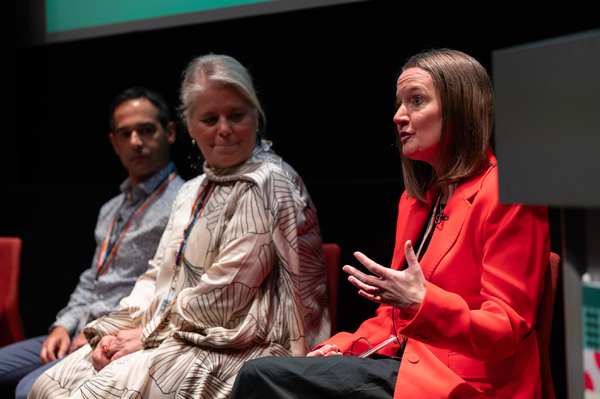
Bachelor added: “The reality is that, for the people I talk to, it is important – but they’re not necessarily acting on it, not if it inconveniences them or costs them more.”
Methven said meaningful communication was key. “Even though I’m interested, I don’t know what one kilogramme of carbon is. It’s meaningless to customers.
"If we focus on the positives of responsible travel, saying, ‘we’ve got an impact, and we’re going to make it the best it can be’, we can almost take that away from the customer. We’re encouraging them to spend their money, so we take responsibility for it."
8) Measure tourism success in value, not volume
Volume has been a yardstick of success for destinations, but the Sustainability Forum highlighted other methods of measurement that emphasise value.
Rachel McQueen, Destination Canada's UK managing director, discussed the organisation’s new wealth and wellbeing index, which looks at data-driven measures of what tourism gives to local communities and guests.
“We’re hopeful the days are gone where we’re just trying to see a rise in people coming, but that people who do come are staying longer, travelling more responsibly, are exploring more communities and doing more when they come to Canada,” she insisted.
While conceding Destination Canada’s 2030 strategy, A World of Opportunity, is focused on growth, McQueen said at its heart it promoted growth "for the wealth and wellbeing of Canadians".
“We believe travel has an impact that can be viewed negatively but it can be positive," she added. "That kind of regenerative approach is critical to embed now. We’re already behind the scale of where we should be as a globe and we recognise that.”
9) From promotion to management of tourism
Speaking during a panel debating the effects of overtourism, taking in protests across Spain and the Balearics in recent months, Susanna Sciacovelli, director of tourism demand and hospitality for the Majorca Tourist Board, highlighted the 14 million tourists that visit Majorca every year against a backdrop of one million local residents on the island.
She said she was “not surprised about groundswell of opinion this year,” but discussed how in the case of Majorca, protests are about the decreasing quality of life for locals as opposed to being strictly "anti-tourist".
"For us, tourism is part of the solution, not the problem," she said. "It’s simplistic to talk about these demonstrations as being against tourism."
Sciacovelli added: “Of course, we can’t promote more tourism, we need to manage demand. Our objective is to manage coexistence between tourism and residents."
10) Tourists ‘a living representation of local frustrations’
Carol Rose, Abta’s head of sustainability, said during her two years so far in the industry, she felt travel is too often “transfixed by climate solutions and decarbonisation” and alluded to Abta’s broader sustainability focus, which encompasses nature and biodiversity.
“[Having] nature as our overarching principle allows us to focus on the people element and the prosperity tourism should bring, not just to travellers but also destinations," she said.
Rose characterised tourists as the “living representations of the frustration [locals] feel", adding there needed to be more proactive engagement by tour operators, destination managers and tourism ministers in these destinations.
Safer Tourism Foundation chief executive Kathy Atkinson agreed: “The protest is a symbol that people are feeling disempowered," she said. "But that protest is not at the individual tourist, it’s at the governance of the tourism industry in that destination.”
11) Treat the ‘small acorns’ responsibly and with respect
As part of the Spanish Tourist Board’s seasonal and geographical diversification strategy, Ruiz emphasised the redirection of tourism flows from traditional destinations to other parts of Spain, citing many examples, including former capital Valladolid hosting this year’s Aito conference in November.
Elena Perez, chief human resources and ESG officer at HBX Group, added: “We can use travel as a force for good. The traveller is more interested in these lesser-known destinations, and there are generations that are more in touch with sustainability. They are going to try and look for those destinations where they can connect and have those experiences.”
But Ruiz insisted on collaboration and cooperation with those local residents who “are in the learning and decision process for every single project”, with Perez echoing the sentiment of communities being “at the centre of design”.
12) ‘Sustainability isn't about putting a hotel in a push-up bra’
Managing director of marketing specialist Kemosabe, Rebecca Adair, talked about selling sustainability and making it "sexy". "Saying you want sexy is teeing you up to be the ‘dad at the disco’ – the reason it doesn’t work is because it feels a bit flippant and like you haven’t thought it through," she insisted.
“Sustainability isn’t about putting a hotel in a push-up bra. It’s about making it compelling and giving people that magnetic attraction – it’s making consumers feel ‘I want to do that'."
Adair added creativity and having a single message – “one golden arrow” – was key. “Don’t lead with sustainability. Be single-minded, and be creative."
Sign up for weekday travel news and analysis straight to your inbox

Sarah Dennis
Supplier Directory
Find contacts for 260+ travel suppliers. Type name, company or destination.
